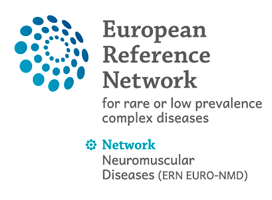25 Feb 2020
Long-term human IgG treatment improves heart and muscle function in a mouse model of Duchenne muscular dystrophy
Authors:
Jana Zschüntzsch, Pia Vanessa Jouvenal, Yaxin Zhang, Florian Klinker, Malte Tiburcy, David Liebetanz, Dörthe Malzahn, Heinrich Brinkmeier & Jens Schmidt
Duchenne muscular dystrophy (DMD) is a progressive muscle-wasting disease caused by mutations in the dystrophin gene, which leads to structural instability of the dystrophin–glycoprotein-complex with subsequent muscle degeneration. In addition, muscle inflammation has been implicated in disease progression and therapeutically addressed with glucocorticosteroids. These have numerous adverse effects. Treatment with human immunoglobulin G (IgG) improved clinical and para-clinical parameters in the early disease phase in the well-established mdx mouse model. The aim of the present study was to confirm the efficacy of IgG in a long-term pre-clinical study in mdx mice.

